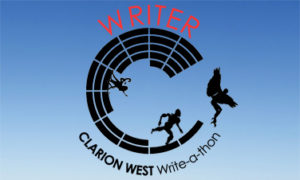When it comes to television, I’m pretty much a PBS addict, but I do occasionally watch other channels. One of my guilty pleasures is watching TLC, since I like some of the programs having to do with fashion, like the makeover shows and shows about wedding dresses. (I’ve become a fan of the designer, Pnina Tornai — some of her dresses are amazing! — and I named Crea’s cousin in How to Steal a Demigod ‘Penina’ as an homage to her.) On one episode of Say Yes to the Dress, the sales consultant’s reaction to a comment made by a member of the bride-to-be’s entourage is hilarious. People can certainly say odd things when criticizing a dress and saying what it reminds them of (or describing what they think the dress should look like), and in this case the odd objection caused the poor consultant to look both confused and exasperated and exclaim, “What does that even mean?!” The way she drew out the word ‘mean’ for maximum effect made it particularly funny, and also made the phrase and her intonation stick in my mind.
So I’ve been buried in copy edits for the first two volumes of In the Shadow of the She-Wolf, and it never ceases to amaze me how little things can sneak through in a manuscript that’s been picked over and edited many times. Some of those sneaky proofreading errors are fairly understandable, such as a replacement of one word with a similar one that’s still a real word with a correct spelling. My writing buddy whom I sent an ARC to caught one of those — ‘pouring’ in place of ‘poring’, when it means going over something in detail. (Like copy edits!) Since I normally pride myself on my copy editing skills (and the first agent who read a full manuscript of mine commented on how clean that manuscript was), it’s still embarrassing, but it’s not as if that’s a word most of us think about very often. Much worse — and I have no idea why it wasn’t corrected earlier — was the replacement of the word ‘series’ with ‘serious.’ Three other people (in addition to myself) read that, and not a single one of us caught it? Seriously? 😉
I’ve come to the conclusion that even the most picky readers (who can be very scathing in their criticism!) sometimes get caught up in the story or are focusing on one aspect of the writing more than another, and miss things that should be obvious. As I mentioned before, some of the little bugs that make me cringe are repetitive things, like the same word appearing three or four times in a paragraph or two when it could be reworded to avoid that repetition, or using the same speech tag or a very similar description of someone’s expression only a few paragraphs apart, even if those things might not really bother a reader who is caught up in the story. Even more embarrassing is when you come across a sentence or phrase — which might have been intended as a poetic metaphor or a creative way of capturing a feeling, or might just have been something which should have been simple yet didn’t come out that way — and realize you’ve been skimming over it because it seems to capture the gist of what you intended. But when you take a good hard look at what the words on the page actually say, you find yourself thinking, “What does that even mean???!!!”



